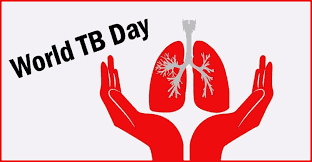World TB Day, falling on March 24th each year is designed to build public awareness that tuberculosis today remains an epidemic in much of the world, causing the deaths of nearly one-and-a-half million people each year.
Tuberculosis, commonly known as TB, is a bacterial infection spread through the air from a person who has active tuberculosis to those who are in close contact. It is most often found in the lungs.
Most people who are exposed to TB never develop symptoms because the bacteria can live in an inactive form in the body. But if the immune system weakens, such as in people with HIV or elderly adults, TB bacteria can become active. In their active state, TB bacteria cause death of tissue in the organs they infect. Active TB disease can be fatal if left untreated.
TB affects many Indigenous Peoples, but together we can raise awareness in communities to help end TB.
To learn more about TB symptoms, testing, and treatment contact your health care provider.









